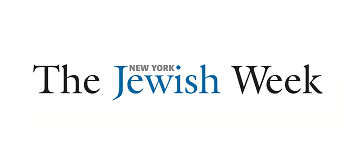
Open to Debate
May 18, 2006
by Gary Rosenblatt
Few would argue that the level of public discourse in our society has reached a dangerously low point. Witness the mean-spirited partisanship of Congress and the belligerent rudeness of cable television discussions of the issues of the day, which themselves tend to be more about celebrities and scandals than thoughtful analysis of pressing topics like the struggle against Islamic militancy, global warming, and improving our children’s education.
Robert Rosenkranz decided to try to do something to raise our standards of discussion, and the results of his effort should be studied and emulated by leaders of the Jewish community.
Impressed with a series of popular weekly debates held in London that combine wit, charm and serious content, the chairman of The Rosenkranz Foundation decided to import the concept to these shores. Last Wednsesday he launched Intelligence Squared (www.iq2us.org), a series of Oxford-style debates before a live audience in New York that will be broadcast by NPR around the country.
The first debate, held at the Asia House on Park Avenue, attracted a full house of about 300 people to hear six experts on Iran tackle the motion: “We must tolerate a nuclear Iran.” Guests were polled before and after the debate to see if their views shifted on the basis of the skills and logic of the panelists of academics, analysts and writers.
In the first round George Perkovich of the Carnegie Endowment for International Peace, speaking for the motion, argued that launching a war against Iran would not solve the problem, while Patrick Clawson of the Washington Institute for Near East Policy countered that allowing a nuclear Iran would lead to up to 30 more countries developing nuclear weapons. (Most people were against the motion, but the margin narrowed by evening’s end.)
Rosenkranz, a prominent New York insurance executive, said he was pleased with the inaugural effort, though he would like to attract a younger and more diverse audience in the future. (Upcoming topics include “freedom of expression must include the license to offend” on Oct. 18 and “a democratically elected Hamas is still a terrorist organization” on Nov. 29).
Rosenkranz said that as a member of the Council on Foreign Relations and several think tanks, he was used to discussions that sought to “minimize rather than sharpen differences.” But the Intelligence Squared series is trying to do something different, he said. “We want to help people understand the facts behind the emotions” of a given topic, and “force people to have a greater respect for civil discourse, not by trying to be bland but appreciating how complicated the issues are.”
The NPR broadcasts will give the debates a national platform, and it will be interesting to see if the U.S. debates achieve the kind of success the British version of Intelligence Squared does.
The Jewish community certainly could benefit from a platform of sophisticated discussion on vital and sensitive topics, from if, when and how to criticize Israeli policies, to finding creative ways to subsidize Jewish day school tuitions, to encouraging the participation of interfaith families in Jewish life without lowering religious standards. Too often these and other important issues are either discussed narrowly, by proponents or critics, or not at all, for fear of fostering further communal division.
Some of these issues were to be dealt with this Chanukah at an ambitious World Jewish Forum in Jerusalem under the auspices of Israeli President Moshe Katzav. But Katzav is facing serious allegations of sexual harassment, and the conference has been shelved for now.
In several weeks The Jewish Week will hold its second annual gathering of The Conversation, bringing together about 60 American Jews who are leaders (or emerging leaders) in their respective fields, from arts to business to philanthropy, to grapple with the issues they feel are most pressing. The participants reflect a broad range of religious and political views, but at their request the retreat will be off the record, a chance for them to speak openly about their concerns, goals and dreams.
Though the thousands of pages of the Talmud, echoing over the centuries with the vigorous give and take of rabbinic sages, are a reminder of our tradition of open discussion, that art has been lost in our day of deep divide and minimal discourse.
The communal agenda should include a platform for public dialogue and debate of Jewish issues that affect us all, emphasizing logic and reason rather than what Robert Rosenkranz calls “the toxically emotional and reflexively ideological” discussions that permeate our society.
Proposed motion, then: “Our community needs a forum for airing vital issues with vigor, but no rancor.”
Who can argue with that?
© 2000 – 2002 The Jewish Week, Inc. All rights reserved